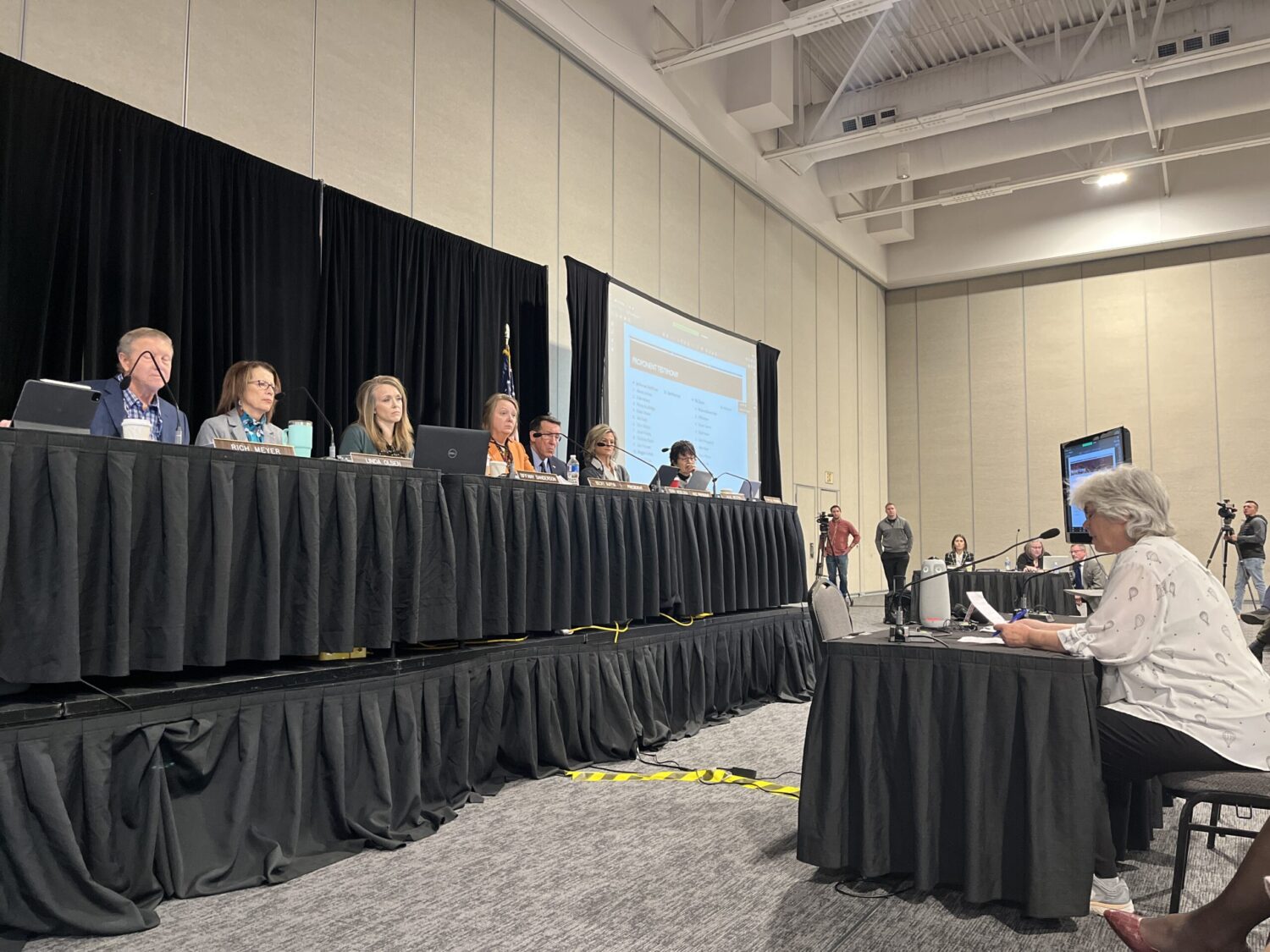
(Makenzie Huber/South Dakota Searchlight)
Those who opposed the state Board of Education Standards’ 2022 decision to reduce travel reimbursements for providers in South Dakota’s Birth to 3 program said the change would make providers less interested in working with the program.
South Dakota Birth to 3 is a federally required program providing developmental and health-related services to infants and toddlers who show delays or disabilities.
But a year after the changes were implemented, only one provider so far has stopped working with Birth to 3 citing the pay changes, according to a Department of Education report to the board at its Friday meeting in Aberdeen.
Board President Terry Nebelsick, from Huron, said the report was “remarkable.”
The changes were implemented because 2022 Medicaid rates and a legislative 6% increase in reimbursement rates would have increased spending in the Birth to 3 program by up to an estimated $400,000, according to reporting from KELO last year. At the time, the state reimbursed providers for travel time up to $13.14 for every 15 minutes on the road, with rates varying depending on their specialty and the purpose of the visit.
Instead, the department and board changed travel reimbursements for providers to a flat $1 per mile and saved an estimated $319,862.
The $1 per mile travel reimbursement rate is similar to what lawyers are paid by the state Unified Judicial System. UJS officials have admitted the $1 per mile reimbursement rate is subpar and discourages attorneys from accepting work in rural areas of the state.
The department told board members at the time that the program could use teletherapy more often as well. Those in opposition to the rule changes also said teletherapy sessions weren’t in the best interest of the child, according to KELO reporting. The DOE’s Thursday report did not touch on teletherapy impacts or results.
Since the changes were implemented, 32 new providers are serving children across South Dakota. The number of special instruction and family training providers has almost doubled during that time, according to Sarah Carter, administrator of the DOE South Dakota Office of Early Childhood Services.
Many of the new providers serve in rural areas of the state that had “previously struggled” to find providers, Carter added. Four other potential providers are currently in the approval process.
“I’m encouraged you have more providers in rural areas,” said board member Linda Olsen, from Dupree in northwestern South Dakota. “That was needed.”
